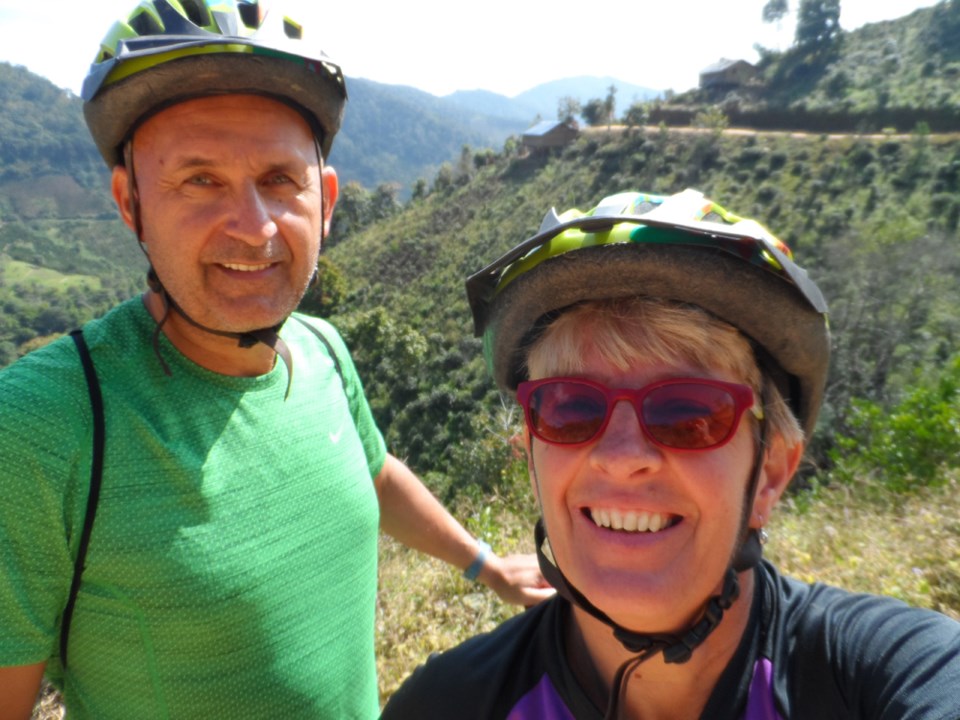Melanie Reimer and her husband Greg Grosenick live in the colonial city of Granada, Nicaragua. Last week, protests broke out in the streets of the capital city Managua against the ruling Sandinista government and some of its policies.
They quickly spread throughout the country, leading to violent clashes with police and youth groups affiliated with the government.
Although Grosenick is working out of the country, Reimer is at home in Granada watching the situation unfold.
Q: How long have you lived in Nicaragua? Have you experienced any disturbance like this before?
Nine years. Nothing like this has happened here in that time, though I did experience a situation of armed revolt in East Timor in 2006.
Q: Where were you and what was going on when you first learned of the unrest?
I was swimming at a club just outside of Granada last Friday when I heard a series of explosions from the city, and quickly realized that it was not the normal fireworks that are popular here (almost every day I hear at least one firework explode in our neighborhood, often associated with a Catholic celebration). I knew that meant the unrest had spread from Managua to Granada.
Q: Most of the trouble is in the capital, correct? How far away is that from Granada?
Yes, the worst violence between protesters and police (and subsequent looting of stores) has occurred in Managua, which is about 40 kilometers from Granada on a good highway.
Signs of violence
Q: What signs of violence have you seen in your city? How close was it to your home?
As I rode my bike home from the pool on Friday, I turned away from one main street as it was full of protesters, then found myself faced with the same situation in the only other street that would lead to my home. So, I stopped to talk with residents of the street who were out watching and waiting to see what would happen. I saw several small groups of young men with faces covered by bandanas, carrying rocks in their hands, and there was smoke in the air from burning tires in the street up ahead. I hung out for about 10 minutes on the sidewalk and saw that nobody was attacking anyone else, so when a couple of cars started to navigate through the crowd, I tagged along behind them to reach a junction where I could escape the crowd and head for home, which was about three blocks away.
Q: How do you feel… worried? Mildly concerned? Fine?
Very mildly concerned for my personal safety, much more worried about the young people (mostly) who are protesting and paying the price with their lives in some cases, and about how this will affect the Nicaraguans economically. Even if this were to be resolved tomorrow, many potential visitors to this beautiful country (and investors) will be frightened by the news coverage and decide not to come here.
Q: What measures, if any, have you taken to stay safe?
Just monitoring the news and social media steadily to see what is happening or scheduled in Granada, and avoiding unnecessary movement when protests are going on and after dark. Also, in case the stores close temporarily, ensuring that I have enough food in store for my cats – and for me!
Foreigners affected?
Q: As a Canadian living in Nicaragua, do you feel more or less at risk than your Nica neighbours and friends? Would foreigners be targeted in any way by the protesters or the Sandinistas? Might they mistake you for Americans?
I feel at much less risk than Nicaraguans because I have more of a cushion to fall back on—in terms of money but also simple things like a stock of food, which many could not afford to buy for an entire family. I also have the option to leave easily in the event that the situation gets worse. Foreigners are not being targeted in any way in this uprising, American or otherwise.
Q: Have any of your friends or acquaintances been directly involved in or affected by the unrest? How so?
Only to the extent that several have had their businesses affected by visitors cutting short their stays or cancelling trips to Nicaragua.
Q: Do you have any sense of how long it will continue?
No, the situation is very fluid at present. Yesterday we all heaved a huge sigh of relief when a massive march in Managua went peacefully. It is also encouraging that the President (Daniel Ortega) has reversed the decision on social security that sparked the unrest last week, but people have many other complaints against this government and I believe protests will continue in some form.
Q: If the conflict lasts / worsens, what will you and Greg do?
We love Nicaragua and consider it our home, so leaving for good would be very difficult. We are fortunate to be able to work from just about anywhere and to have friends in many countries, so we could relocate temporarily without much trouble.




